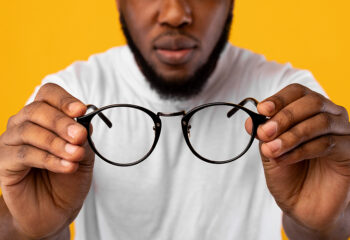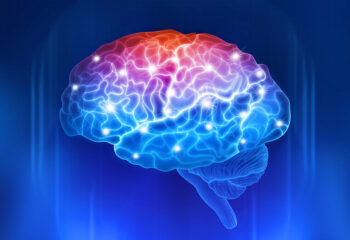It is often said that vision loss affects your eyes, not your brain. We know many capable people who continued to thrive in their personal and professional lives despite the added challenges of severe vision impairment or blindness. We want to believe our brains will hold up against the inevitable injury that occurs with a loss of sight. On the other hand, Jane Brody writes, “if the brain has to work extra hard to make sense of what our eyes see, it can take a toll on cognitive function.”
The news was reported in the Personal Health column of the NY Times, based on findings from the Baltimore Longitudinal Study of Aging. The research followed 1,200 women and men, age 60 to 94, and involved both vision and cognitive testing. Participants with ophthalmic issues including poor visual acuity, depth perception and low contrast, were also more likely to show cognitive decline over the course. The information is not exactly uplifting, but delivered in that quintessentially Jane Brody kind of way, it was bad news followed by good news. That’s right, there is something we can do about it. Like many other factors involving health and aging, this too is all about the steps we take to keep our brains fit. It very much depends on how we deal with it.
Preventing cognitive decline related to vision loss is within our grasp. Vision loss that goes unaddressed often results in a decrease in physical and social activity, which adds to the decline in brain power. Here are steps recommended to maintain mental sharpness with changing eyesight and age:
- Get annual eye exams, to identify problems early that can be corrected or addressed before they contribute to mental decline
- Uncorrectable vision loss, or low vision, can be helped by vision rehabilitation, which includes evaluation, counseling and training that helps visually impaired people compensate and adjust
- Don’t wait until a visual impairment begins to adversely impact daily function, start adjusting early
- If the doctor says nothing can be done to medically treat the vision problem, that does not mean there is nothing you can do to improve your quality of life
- Maintain a strong social connection to friends and family
- Making adjustments in our home and work environment can significantly improve daily function, productivity and confidence
Cognitive decline is an eye opener, bringing a new sense of urgency to coping with vision loss. Jane Brody’s message is one advanced by OE Patients everyday. Find more OE links below to more helpful content relating to this topic:
10 Things to Know About iPhone for Vision
Your Smartphone is a Comprehensive Low Vision Device







